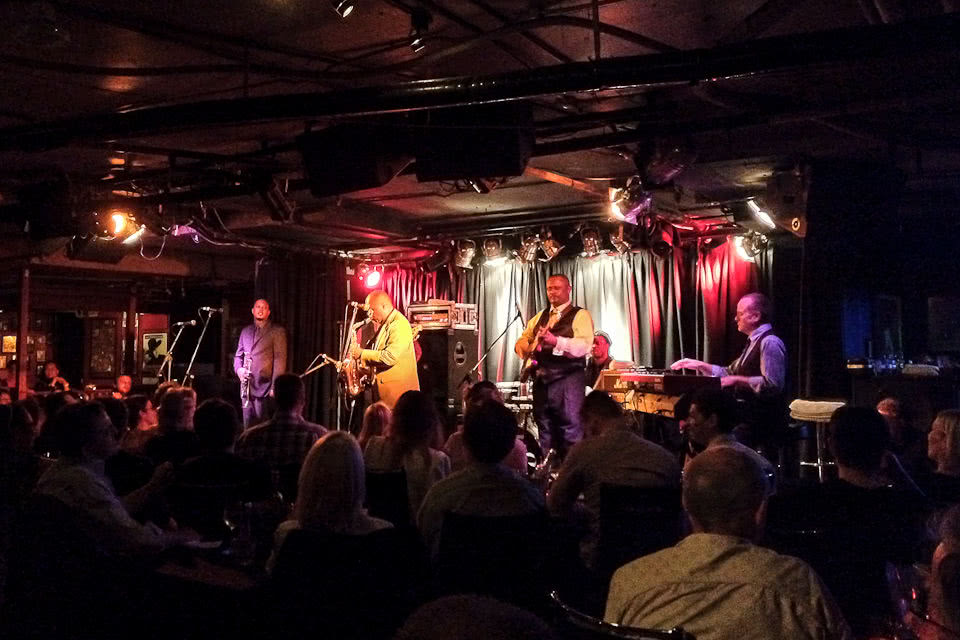Sydney’s long, miserable night(life) is coming to an end

The long, miserable night is coming to an end.
Sydney’s once vibrant nightlife economy is set for a massive lift, with councillors just days out from endorsing transformative changes to late night planning controls.
Among the proposed city-wide reforms, venue operators could be rewarded with an extra hour of trading for programming live music, a new cultural precinct would come to Alexandria, and, just maybe, 24 hour-trading in the CBD.
This coming Monday (May 13) will see councillors voting on what’s described as the biggest overhaul to planning controls for late night trading in more than a decade.
It’s the endgame in a years-long process which will create opportunities for the live industry, artists and many others, according to Jess Scully, who alongside Lord Mayor Clover Moore and the assembled Nightlife and Creative Sector Advisory Panel, has shaped the city’s action plan.
“Absolutely it’s a really big deal. It’s unlocking the potential that Sydney has to shift where and when and how our nightlife happens,” Scully tells TIO. “It’s a plan that sets the foundation for the next 10 years.”
After assembling a panel of 15 experts from across the nightlife and creative sectors, a plan was drawn up to fix the problem that Sydney’s nightlife had become. Last November, a set of late-night trading planning controls were shared in the City of Sydney’s so-called late night transformation plan.
Among the five key points, a 24-hour city centre, an increase in hours (until 2am) for “low impact venues” in local centres and a flexible new set of provisions to encourage performance and culture businesses, while not punishing unlicensed shops.

The Basement
Australia’s most populous city generates upwards of $4 billion per year from its nighttime economy, with almost 5,000 businesses employing more than 35,000 people, according to the City of Sydney. That’s the good stuff.
A raft of harsh and dated policies had activated a handbrake to the night economy, a fact that bore out in more than 10,000 pieces of feedback, many of which called for increased trading hours and a diverse night time economy. A public consultation period followed, and wrapped up in February of this year.
This process for change “will be led by customer demand,” says Scully. And it will happen slowly. The changes can take effect from as early as June, with every business required to apply for a DA for longer trading hours, which will be awarded incrementally.
“You won’t go from 8pm to 2am trading, you’ll expand slowly. That’s to bring the neighbourhood, and the consumers, along with you,” explains Scully.
For the wider music community, one of the critical changes is a strong incentive for venues to program live entertainment and performance, where a bonus hour of trading is awarded for every night live performance, from theatre, comedy or gigs.
“An extra hour you can trade late on those nights makes a huge difference,” says Scully. “We’ve heard from venue owners who say people drink less when they’re watching live music,” because they’re engaged with the action on stage.

Clover Moore
“Actually,” she adds, “it’s those couple of drinks people buy after the show that are really important for the profit margin of those venues. By doing this, we’re making it more profitable for venues to host live music because they’re getting a bonus trading hour for it.”
Speaking to Real Commercial, National director of Investment Services at Colliers International Miron Solomons said the reforms would lead to a “hive of activity” and would impact on commercial property values in those districts touched by the changes.
Solomons, however, wasn’t convinced the changes would return Sydney’s nightlife to its pre-lockout heyday.
“There’s been a lot of water under the bridge since the first lockout laws were introduced. A lot of the ecosystem built around the nighttime economy has been destroyed – not only the jobs, but the venues and the infrastructure,” he said.
“Night clubs in basements and on the first floor of buildings have found alternative uses, for example, and it’s very hard to just flick the switch and go back there – you need to build the infrastructure again.”
There’s still work to be done on the reforms, with a number of Chippendale residents sharing their reservations about how far the zone extends, Scully admits. The paperwork may incorporate changes to reflect that.
Earlier this week, members of the public, artists and businesses were invited to present their perspectives on any policies relevant to them. A formal meeting of the council will take place this Monday, with a debate among councillors and a final vote.
Scully and her colleagues are confident of a positive outcome come Monday. How confident?
“It’s a really strong sign when we’ve had unanimous support at committees. It’s a strong sign it’ll get approval from the whole council. We’ve had that.”
This article originally appeared on The Industry Observer, which is now part of The Music Network.


































